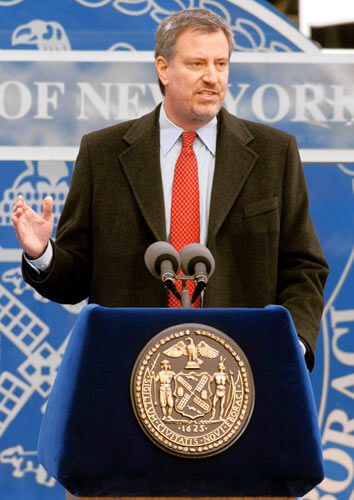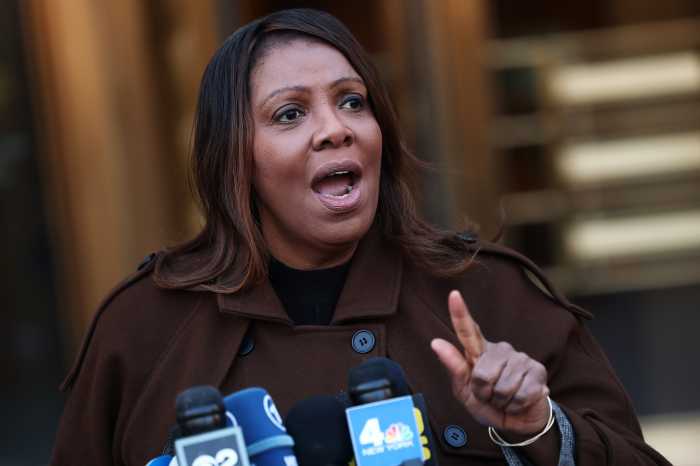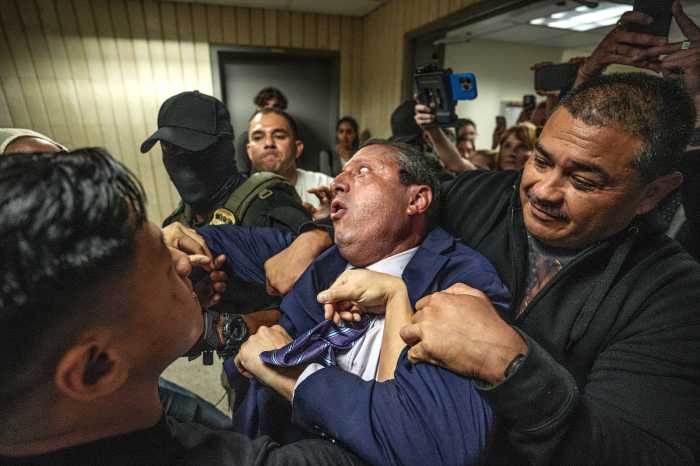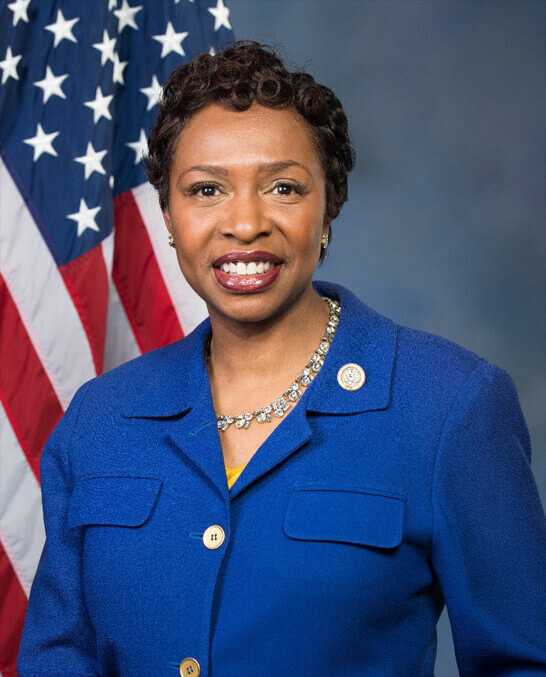On the eve of expansion of a federal immigrant fingerprinting program, New York City Public Advocate Bill de Blasio has urged the federal government to halt expansion of the controversial plan that targets Caribbean and other illegal immigrant suspects.
Despite strong opposition from the governors of New York and Massachusetts and immigrant groups, the Obama administration was expected to extend Secure Communities this week.
In a letter sent over the weekend to U.S. Attorney General Eric Holder, de Blasio warned of the risks Secure Communiites poses to public safety.
“The Secure Communities program takes fingerprints of suspects in jail and sends them to the Federal Bureau of Investigation (FBI), which, in turn, shares the information with the U.S. Immigration and Customs Enforcement (ICE),” he wrote.
“The program has resulted in the deportation of thousands of people accused—but never convicted—of committing a crime,” he added.
“As a law enforcement strategy, Secure Communities has backfired, eroding the trust between immigrant communities and law enforcement—making our communities less safe,” de Blasio continued.
He said local law enforcement requires the “active and sustained cooperation of immigrant communities to effectively fight crime.
“The implementation of this program intimidates immigrants, reducing the likelihood that they will report crimes or come forward as witnesses for fear of risking deportation,” de Blasio said.
“The Secure Communities program sends exactly the wrong message to our immigrant communities, at the expense of public safety. For the sake of our security, I urge you to stop the expansion of this program at once,” he told Holder, the son of Barbadian immigrants,
In e-mails dispatched late last week to officials and the police in Massachusetts and New York, ICE officials said Secure Communities would be activated “in all remaining jurisdictions” on May 15.
“Secure Communities has proven to be the single most valuable tool in allowing the agency to eliminate the ad hoc approach of the past and focus on criminal aliens and repeat immigration law violators,” said Barbara Gonzalez, an ICE spokeswoman, in a statement.
“At the end of the day, this is a federal program,” she added. “We have to make our own decisions based on our law enforcement operational needs.”
Last June, Massachusetts Gov. Deval Patrick refused to sign an agreement with ICE to expand Secure Communities beyond a pilot program in the Boston area since 2006.
At the same time, New York’s Gov. Andrew Cuomo, said he wanted to suspend the program, which had already been initiated in a number of counties in his state.
Critics say Secure Communities is an “overly wide dragnet” that seeks to deport a significant number of illegal Caribbean and other immigrants with no criminal record.
They also say these immigrants were arrested for minor infractions, and that the policy fosters racial profiling.
A spokesman for Cuomo said the New York governor, whose state has a significant number of Caribbean immigrants, is “monitoring the situation.”
Patrick said it is “very important” to him that people not see expansion of Secure Communities as “a license to profile.”
Boston Mayor Thomas Menino said it’s “dangerous to target immigrants when you are trying to build a community.
“The information gets put into a computer and sent to Washington, and the wrong person gets deported,” he said.
“I want to make this city work; and, to have the feds (federal government) come in and tell me you have to do this or to do that is just wrong,” he added.





















